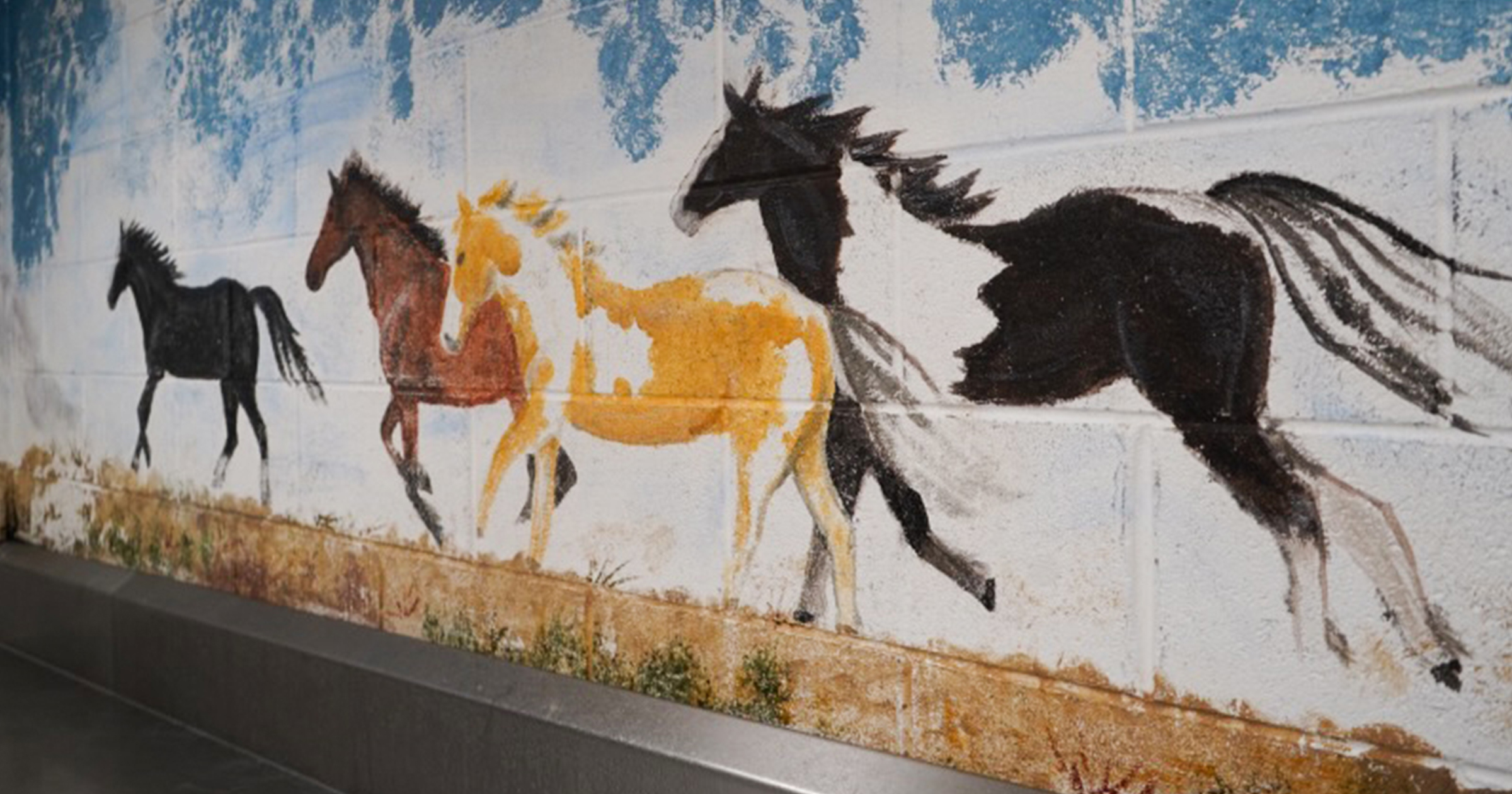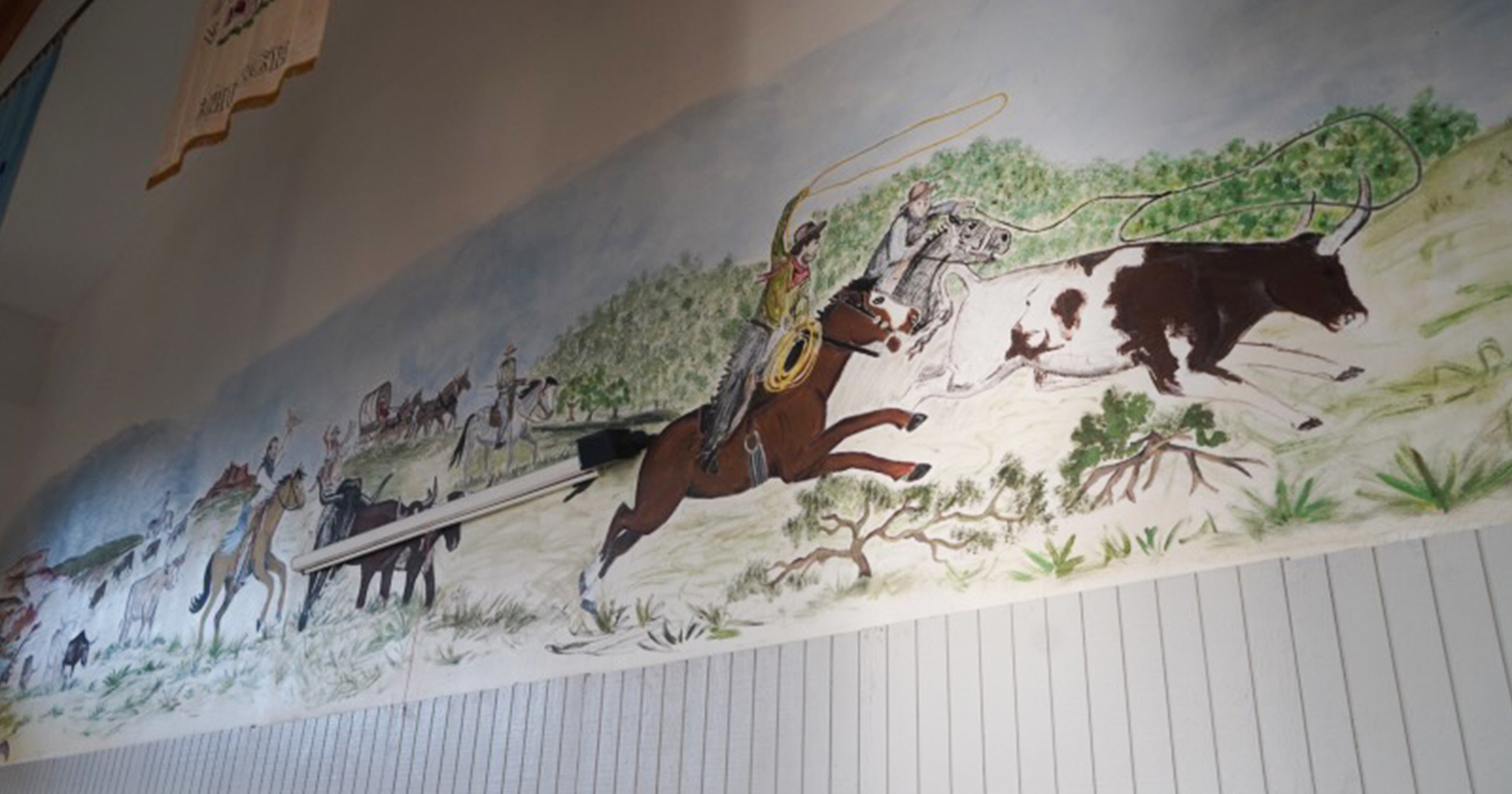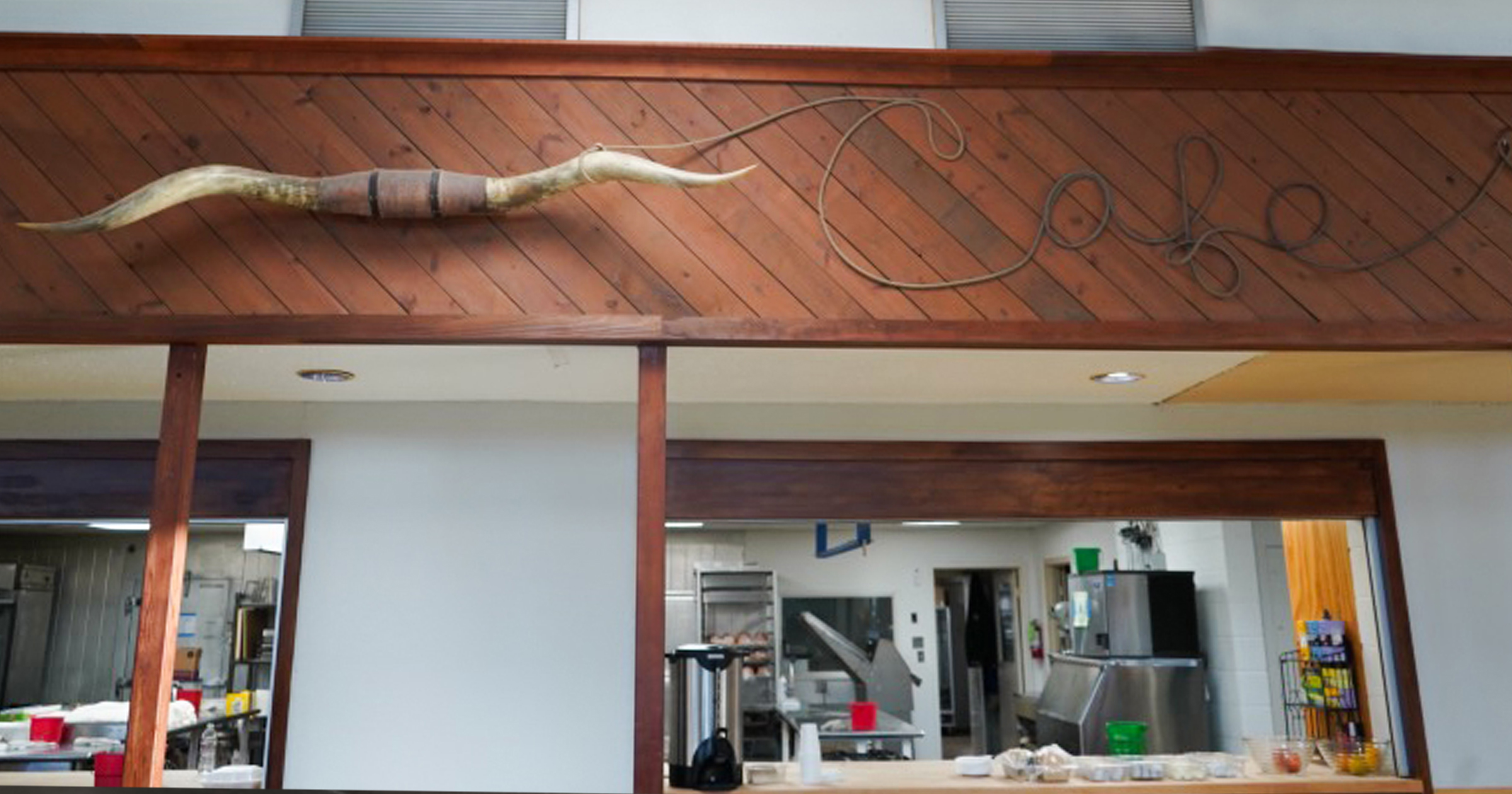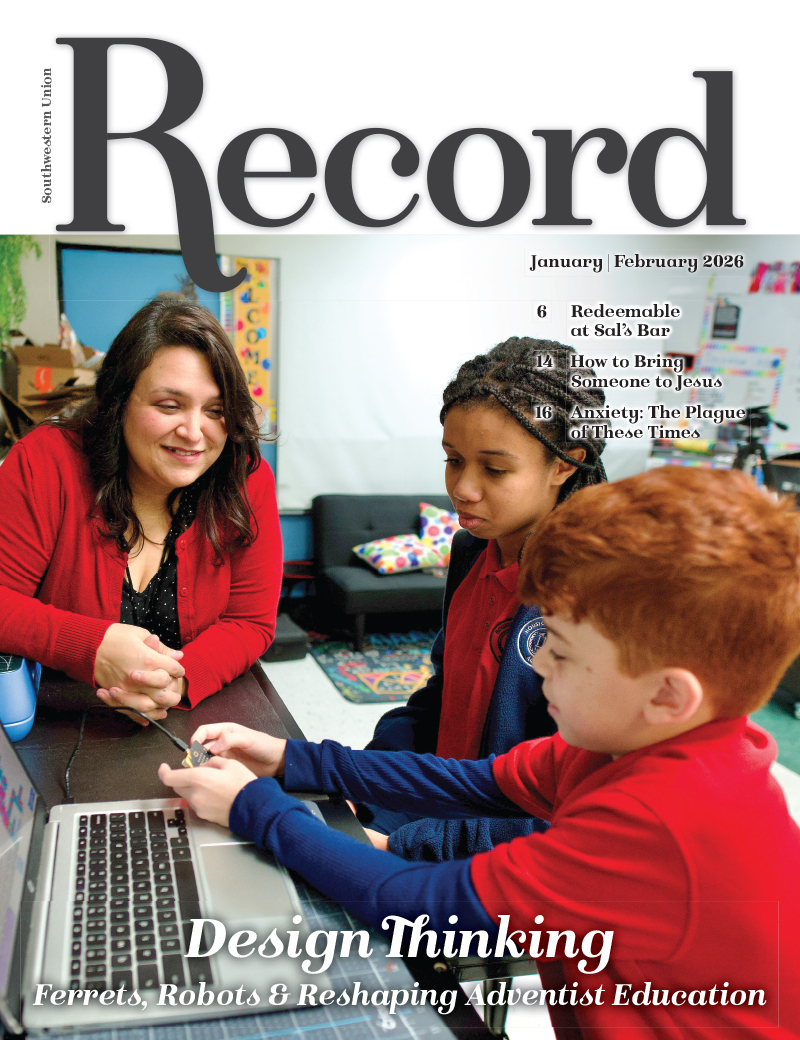Lisa East Leaves a Lasting Legacy at WWAC

WEWOKA, OKLA. – Campers at Wewoka Woods Adventist Center (WWAC) may come for summer programs, retreats or Pathfinder campouts—but many memories focus on the Longhorn Café and the horses just down the hill. Behind both is the creative vision and ministry of longtime staff member Lisa East.
East, who served as WWAC’s food service director and horsemanship director, named the Longhorn Café after discovering a pair of donated longhorns and mounting them over the serving line, giving campers’ favorite gathering spot its now-iconic name.
During mealtimes, the café fills with happy voices. Floor-to-ceiling windows on two sides offer a panoramic view of the lake, and a larger-than-life fireplace adds to the warm, rustic atmosphere.

In the summer of 2010, East looked up at the high ceilings and saw an opportunity. What began as a small mural in the dishroom—featuring some of her favorite horses—grew into a full-length mural across one upper wall of the dining hall. Painted with help from family and volunteers, the mural was created to stir campers’ interest in the growing horse program.
East and her husband, Robin, had brought their own horses to WWAC and eventually grew the herd to 50. At its peak, the horse program attracted campers from as far away as Australia, Switzerland and Austria.

East says her goal was “to teach people about nature through God’s gift of horses.” Alongside summer programming, she also taught after-school horsemanship to at-risk students in nearby Wewoka and Holdenville. Starting with third graders, she introduced children to horse care and miniature horse driving skills—offering connection, responsibility and joy.
Even off-season, the horses were part of the community. For two years, they participated in Wewoka’s annual Sorghum Festival, helping press sorghum the traditional way and delighting festivalgoers with a glimpse of farm life.

Today, horse riding remains one of the camp’s most loved activities, and the longhorns, horses, cows and wagons still grace the dining hall walls—reminders that the space was shaped by one woman’s heart for hospitality, animals and ministry.
By Caroline A. Fisher


